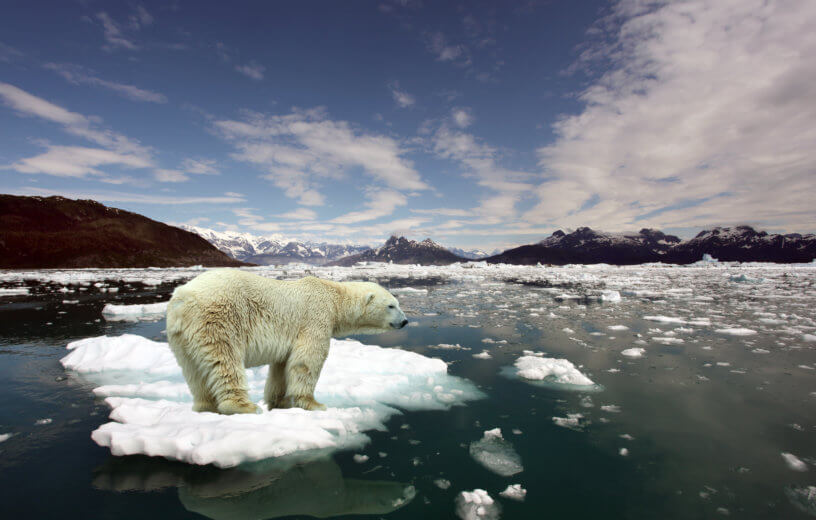WASHINGTON — Climate change is a divisive topic these days, and many people tend to pick a stance on the issue depending on their political allegiances. Now, researchers working with the American Geophysical Union have found that if carbon production continues at current levels, it will reach readings within the next 140 years that haven’t been seen since Earth’s last major greenhouse warming event 56 million years ago.
Right now, humans are pumping carbon dioxide into the atmosphere at a rate nine to 10 times higher than what was being produced during the planet’s last major warming event, the Paleocene-Eocene Thermal Maximum, or PETM for short. Researchers calculated that the Earth in on pace to reach the same level of greenhouse gases in the atmosphere as the PETM period by 2159.
“You and I won’t be here in 2159, but that’s only about four generations away,” says paleoclimate researcher Philip Gingerich, from the University of Michigan, in a release. “When you start to think about your children and your grandchildren, and your great-grandchildren, you’re about there.”
Historically, the PETM has been used as a benchmark by scientists to compare current climate change to the last major heating event, but this new research indicates we are going to reach that benchmark much faster than originally projected. Scientists call the rate at which we are releasing carbon “unprecedented.”
Even more sobering, the changes we are inflicting on our planet today will resonate for a long, long time.
“It’s not just about 100 years from now; it’s going to take significant periods of time for that carbon dioxide to make its way back into the Earth’s crust,” paleontologist Lauren DeSantis comments. “It’s not a short-term event. We’re really committing ourselves to many thousands of years of a warmer world if we don’t take action quickly.”
For reference on just how hot the PETM period was for Earth, scientists believe that during this time the poles were ice free and the arctic was home to palm trees and crocodiles. Needless to say, this heating event had a massive impact on the planet and its inhabitants. Numerous species died, land animals became smaller and migrated north, and many modern mammals, such as primates, appeared for the first time shortly afterwards. It’s within reason to assume that a similar heating event would drastically change the Earth as we know it once again.
Gingerich and his team found a way to mathematically compare the Earth’s current rates of carbon and greenhouse gas emissions to the PETM period. Their troubling findings indicate that the Earth’s carbon levels could reach the lowest readings associated with the PETM period in fewer than five generations.
“The fact that we could reach warming equivalent to the PETM very quickly, within the next few hundred years, is terrifying,” DeSantis comments.
Alarmingly, the study’s authors say it is impossible to predict exactly what will happen this time around because the warming is happening at a much faster pace than it did millions of years ago.
The study is published in the AGU journal Paleoceanography and Paleoclimatology.
